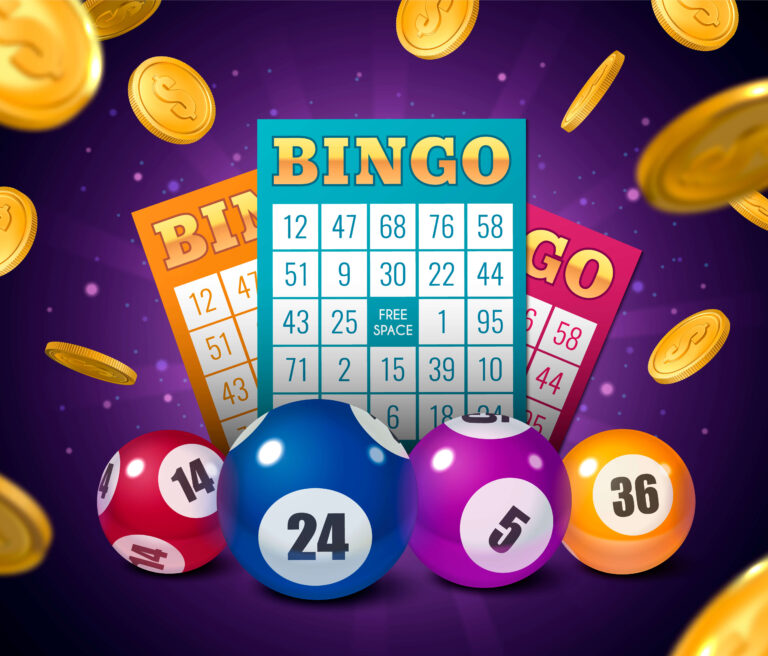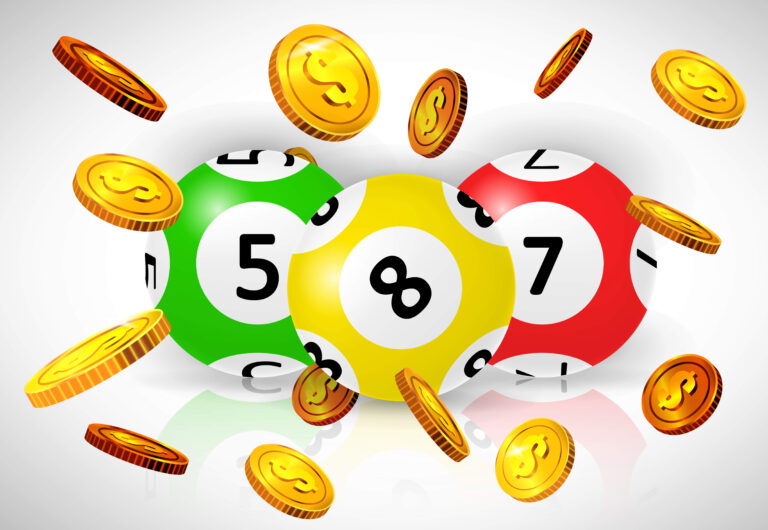Hey there, poker enthusiasts! Whether you’re a casual card player or someone looking to up their poker game, you’ve come to the right place. Poker is more than just a card game; it’s a thrilling blend of strategy, skill, and a dash of luck. In this guide, we’re going to break down the poker rules, step by step, in a way that’s easy to understand. So, shuffle those cards, grab your poker chips, and let’s get started on your journey to mastering poker.
Getting Started with Poker Rules
Let’s kick things off with the basics. Poker is usually played with a standard deck of 52 cards. You’ve got your hearts, diamonds, clubs, and spades, each containing cards numbered from 2 to 10, along with the ace, king, queen, and jack. The ace is a special card, as it can be high or low, depending on the context of the hand.
Next up, poker chips! These little discs are like gold in the poker world. They represent your money at the table, and everyone starts with their own stack of chips. These chips come in different values, making betting and raising a breeze during the game.
Now, meet the dealer button. It’s a small, round disc that moves clockwise around the table after each hand. Why is it important? Well, it determines the dealer’s position for the current hand and sets the order of play. So, it’s a tiny but crucial part of the poker game.
Basic Poker Rules
Here’s where we dive into the heart of poker rules. The goal is simple: win chips or money from your fellow players either by having the best hand when it’s time to show or by convincing them to fold. To do this, you need to grasp some core poker rules.
In most poker rules, you’ll come across “blinds.” These are mandatory bets that two players, usually sitting to the left of the dealer button, have to put in before the cards are even dealt. The player immediately to the left of the dealer posts the “small blind,” while the next player posts the “big blind,” which is typically double the amount of the small blind.
Once the blinds are in, it’s time to deal the cards. Each player receives a mix of face-down cards (known as “hole cards”) and face-up cards (known as “community cards”) based on the poker rules variant being played.
The game unfolds through several betting rounds: pre-flop, flop, turn, and river. During these rounds, players can take various actions:
You can “check” if no one has placed a bet. This means you’re passing the action on to the next player.
You can “bet” if you want to kick things off and set the stakes for the round.
If you think your hand isn’t strong enough, you can “fold,” bowing out of the hand and relinquishing your chance to win the pot.
“Call” is when you match the current bet to stay in the hand.
“Raise” is where you up the ante by adding more chips to the pot, making other players match your higher bet to continue.
Understanding Hand Rankings
Now, let’s talk about hand rankings. Your goal in poker rules is to build the best possible hand. Hand rankings determine which hands beat others. So, let’s break down the standard poker rules hand rankings, starting from the lowest to the highest:
High Card: When no one has a hand with any of the specific combinations, the player with the highest card wins.
One Pair: This is when you have two cards of the same rank, like two queens or two sevens.
Two Pair: Here, you’ve got two sets of pairs in the same hand, such as two eights and two jacks.
Three of a Kind: This hand includes three cards of the same rank, like three tens.
Straight: A straight consists of five consecutive cards of any suit, like 3-4-5-6-7.
Flush: A flush is made up of five cards of the same suit, but not necessarily in sequence.
Full House: This hand combines one pair and three of a kind in the same hand, like two sixes and three queens.
Four of a Kind: When you have four cards of the same rank, such as four aces.
Straight Flush: This is the real deal – five consecutive cards of the same suit, like 8-9-10-Jack-Queen. It’s the second-highest hand in poker.
Royal Flush: The highest hand possible! It includes the A-K-Q-J-10 of the same suit.
These hand rankings determine the winner when it’s time to reveal your cards. The player with the highest-ranking hand takes the pot. Simple, right?
Popular Poker Rules Variants
Poker is a world of variety, and there are many exciting variants out there. Here are some of the most popular ones you’re likely to encounter:
Texas Hold’em: It’s a community card game where you get two hole cards and share five community cards to make your best hand.
Omaha: Similar to Texas Hold’em but with four-hole cards, and you must use exactly two of them in combination with three community cards.
Seven Card Stud: This stud poker rules variant involves seven cards – three face-down and four face-up. Your job is to make the best five-card hand.
Five Card Draw: You’ll get five cards face-down, and you can exchange some or all of them for new ones in an attempt to build a strong hand.
Each of these variants comes with its own unique rules and strategies, adding a ton of variety and excitement to the poker experience. Texas Hold’em, in particular, has taken the poker world by storm and is the face of modern poker rules.
Advanced Poker Rules and Strategies
Poker Rules isn’t just about the cards you’re dealt; it’s about how you play them and how you read your opponents. Here are some advanced poker rules and strategies to consider:
Pot Odds: This helps you decide whether to call a bet by comparing the current pot size to the cost of your potential call.
Implied Odds: These take future bets and potential winnings into account, helping you make decisions based on expected future value.
Expected Value (EV): EV helps you evaluate the profitability of a play or decision by considering potential outcomes and their associated values.
Bluffing: Bluffing is a strategic move where you make your opponents believe you have a stronger hand than you actually do, forcing them to fold.
Reading Opponents: Pay attention to your opponents’ behavior, betting patterns, and tendencies. It can provide valuable insights into their hands and intentions.
Table Dynamics: Understand the dynamics of the table, including your opponents’ styles and tendencies, to make better decisions.
Improving your poker skills takes practice and patience. It’s a game that rewards dedication and strategy.
Etiquette and Conduct at the Poker Table
Poker isn’t just about the cards; it’s also about the players. Maintaining a respectful atmosphere at the table is crucial for an enjoyable game. Here are some etiquette rules to follow:
Act in Turn: Wait for your turn to act, whether it’s to check, bet, fold, call, or raise. Acting out of turn can disrupt the game.
No Discussing Hands: While a hand is in progress, avoid discussing your hand or strategy with other players. It can influence the game’s outcome.
Keep Chips Visible: Make sure your chips are always in plain view of all players at the table. This helps prevent confusion and ensures transparency.
Be Mindful of Others: Avoid slow-rolling (taking an unnecessarily long time to reveal your winning hand) or excessive celebrations that may annoy other players.
Stay Focused: Pay attention to the game and avoid distractions like phones or side conversations.
Respect Others: Maintain a respectful attitude toward fellow players, even if they play differently from you.
Good sportsmanship and adhering to poker rules etiquette contribute to a positive playing experience for everyone at the table.
Online Poker: Rules and Tips
In today’s digital age, online poker has become incredibly popular. It offers the same thrill as traditional poker rules but with the convenience of playing from your own home or anywhere you choose. Here are some essential rules and tips for online poker:
Choosing a Reputable Site: Pick an online poker platform with a solid reputation, secure transactions, and reliable customer support.
Bankroll Management: Set aside a specific bankroll for online poker and avoid chasing losses by playing within your budget.
Understanding Online Dynamics: Get familiar with the online poker interface, including buttons for checking, betting, and folding.
Table Selection: Choose your tables wisely, considering factors like table stakes and player skill levels.
Practice in Play Money Games: Many online poker sites offer play money games for practice. It’s an excellent way to learn the ropes without risking real money.
Multi-Tabling: Be cautious when attempting to play multiple tables simultaneously. It requires skill and concentration.
Poker Tournaments
Poker rules tournaments add an extra layer of excitement to the game. Here’s what you need to know:
Tournament Structure: Tournaments have set structures, including buy-ins, blind levels, and chip stacks.
Survival Play: In the early stages, focus on surviving and conserving your chips.
Chip Accumulation: As blinds increase, shift your strategy toward accumulating chips and putting pressure on opponents.
Bubble Dynamics: Understand the dynamics as you approach the bubble (the point at which players are eliminated just before the money).
Final Table Play: Playing at the final table requires different strategies, as payouts become more significant.
Poker tournaments offer the thrill of competition and the chance to win substantial prizes. They come in various formats, including freezeouts, rebuys, and sit-and-gos.
Conclusion
In the world of poker rules, knowledge is power. Whether you’re playing in a friendly home game or competing in a high-stakes tournament, understanding poker rules and strategies is the key to success. It’s not just about the cards; it’s about making the right decisions, reading your opponents, and adapting to the ever-changing dynamics of the game.
As you embark on your poker journey, remember that practice makes perfect. The more you play and study the game, the sharper your skills will become. So, gather your friends, log in to your favorite poker site, or head to the nearest casino. Poker is a game that rewards dedication and strategy.
Now that you’ve uncovered the poker rules, it’s time to shuffle up and deal. May your hands be strong, your bluffs convincing, and your winnings plentiful. Play responsibly, enjoy the camaraderie of the table, and may the best hand win!
FAQ (FREQUENTLY ASKED QUESTIONS)
Q1. What is the main objective of poker?
A1. The primary objective in poker is to win chips or money from other players either by having the best hand at showdown or by convincing them to fold their hands.
Q2. What are blinds in poker, and why are they important?
A2. Blinds are mandatory bets placed by two players before each hand is dealt. They establish the initial stakes and create action in the game. The player to the left posts the small blind, and the next player posts the big blind.
Q3. How do I know the value of poker chips?
A3. Poker chips come in various denominations, each with a specific value. Casinos typically have color-coded chips, and it’s essential to know the values assigned to each color before playing.
Q4. What are hole cards and community cards in poker?
A4. Hole cards are the face-down cards dealt to each player, while community cards are the face-up cards that all players share. The combination of hole cards and community cards forms your hand.
Q5. Can you explain the different betting actions in poker?
A5. Sure! In poker rules, you can check (pass the action to the next player), bet (start the betting round), fold (surrender your hand), call (match the current bet), or raise (increase the bet amount). These actions vary depending on the stage of the game.
Q6. How do hand rankings work in poker?
A6. Hand rankings determine the strength of your hand. They start with high card and go up to royal flush. When comparing hands, the one with the higher-ranking combination wins.
Q7. What are some popular poker variants I can play?
A7. There are many poker variants, but some of the most popular ones include Texas Hold’em, Omaha, Seven Card Stud, and Five Card Draw. Each variant has its own set of rules and strategies.
Q8. What are pot odds, and why are they important?
A8. Pot odds help you decide whether to call a bet by comparing the current size of the pot to the cost of your potential call. They are crucial for making informed decisions in poker.
Q9. What is online poker, and how does it differ from live poker?
A9. Online poker is a digital version of the game played on the internet. It differs from live poker in terms of gameplay, interface, and the ability to play from the comfort of your home.
Q10. How can I improve my poker skills and strategy?
A10. Improving your poker skills requires practice and learning from your experiences. Study the game, read books, watch tutorials, and consider joining a poker community to discuss strategies with other players.


